Coffee has a long and rich history in the UK, with debates and discussions revolving around its legality in the past. In order to gain a comprehensive understanding, we need to explore the laws and regulations concerning coffee consumption in the UK.
Key Takeaways:
- Coffee has never been completely illegal in the UK.
- The UK’s coffee culture has thrived over the centuries.
- Coffeehouses in the 17th century were popular social and intellectual hubs.
- King Charles II briefly banned coffeehouses in 1675, but the ban was lifted the following year.
- Coffee reputation improved in the 18th and 19th centuries, leading to its popularity among all social classes.
Coffee Consumption in the UK Throughout History
Coffee has been a beloved beverage in the UK for centuries, with a rich history that reflects the evolution of coffee culture in the country. From the 17th century onwards, coffeehouses became popular establishments where people gathered to socialize, engage in intellectual discussions, and conduct business.
During this time, there were debates and concerns about the impact of excessive coffee consumption on society. Some individuals believed that coffeehouses fueled sedition and treason, leading to attempts to regulate the sale and consumption of coffee. However, there were no specific laws banning its consumption.
The Rise of Coffeehouses
The coffeehouse culture flourished in the UK during the 18th and 19th centuries. Coffeehouses became vibrant social hubs where people from all social classes gathered to enjoy a cup of coffee and engage in stimulating conversations. These establishments played a significant role in fostering intellectual exchange and shaping the cultural landscape of the time.
As the popularity of coffeehouses grew, the government implemented regulations and taxes to control the quality of coffee sold and ensure fair trade practices. However, these regulations primarily focused on maintaining the standards of coffee rather than restricting its consumption.
In the late 19th and early 20th centuries, as the temperance movement gained momentum, coffee was promoted as an alternative to alcohol. While there were no widespread bans on coffee during this time, some temperance groups encouraged the consumption of coffee as a way to discourage alcohol consumption.
| Time Period | Significant Developments |
|---|---|
| 17th Century | Debates and attempts to regulate coffee consumption |
| 18th and 19th Centuries | Coffeehouses become popular social hubs |
| Late 19th and Early 20th Centuries | Temperance movement promotes coffee as an alternative to alcohol |
Today, coffee remains widely consumed and legally available in the UK. There are no specific laws or regulations prohibiting its consumption. Coffee culture continues to thrive, with an array of coffee shops and cafes offering diverse coffee options to cater to the tastes and preferences of coffee lovers.
In the next section, we will explore the coffee ban in the 17th century and the reasons behind its short-lived existence.
The Coffee Ban in the 17th Century
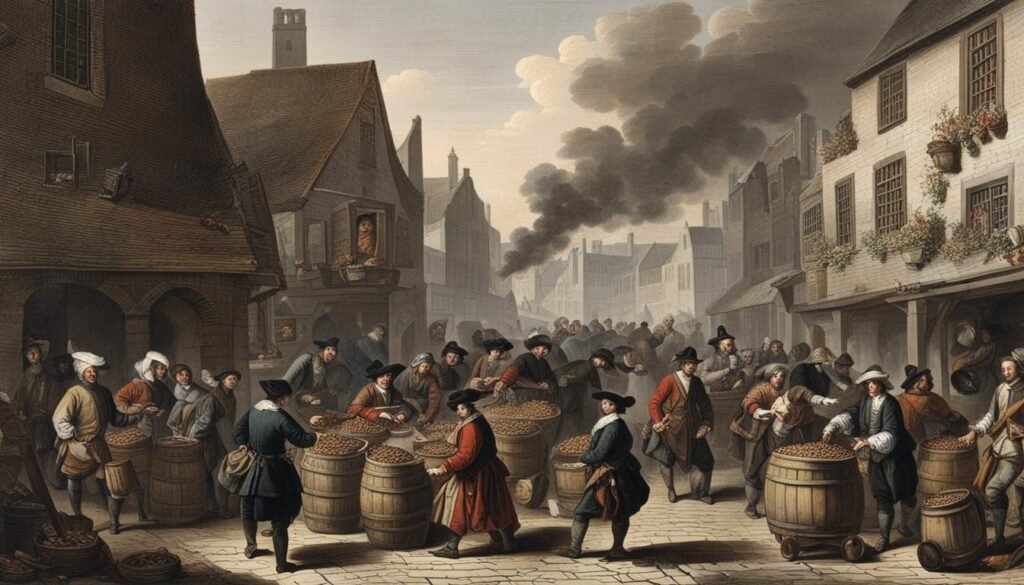
During the 17th century, coffeehouses in the UK gained immense popularity as places for intellectual discussions and political debates. However, this also raised concerns among the monarchy and the government. In 1675, King Charles II issued a proclamation banning coffeehouses, citing them as hotbeds of sedition and treason.
The ban on coffeehouses was short-lived, as it was lifted the following year. Despite the official ban, coffeehouses continued to thrive, albeit with some restrictions and regulations. The government imposed licensing fees on coffeehouses to maintain control over their operations and ensure that they did not become a threat to the monarchy or the government itself.
The short-lived ban on coffeehouses showcases the significance and influence they held during that time. These establishments played a crucial role in shaping public opinion and fostering intellectual discourse. The lifting of the ban reflects the resilience and popularity of coffee as a beverage and the acceptance of coffeehouses as integral parts of society.
The Impact of the Coffee Ban
The coffee ban in the 17th century had a profound impact on society. It sparked debates about the limits of freedom of speech and the role of coffeehouses in shaping public opinion. It also led to discussions on the influence of government control over public spaces and the right to gather and express ideas freely.
Furthermore, the ban highlighted the growing power and influence of coffeehouses as social and intellectual centers. By attempting to control and restrict coffeehouses, the government inadvertently brought attention to their significance and the role they played in shaping society.
Table: Comparison of Coffee Bans in the UK
| Period | Ban Duration | Reason for Ban |
|---|---|---|
| 17th Century | 1 year | Coffeehouses seen as hotbeds of sedition and treason |
| No other bans recorded in UK history |
Overall, the ban on coffeehouses in the 17th century sheds light on the complex relationship between coffee, politics, and societal control during that period. It serves as a reminder of the historical significance of coffeehouses and their role in shaping the intellectual and social fabric of the UK.
Coffee’s Reputation in the 18th and 19th Centuries
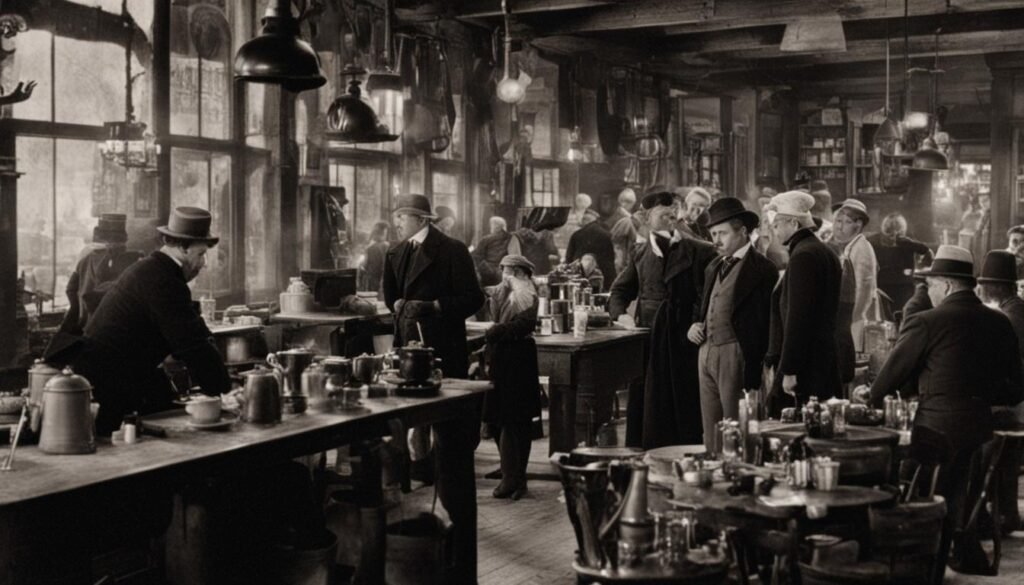
In the 18th and 19th centuries, coffee experienced a significant shift in reputation in the UK. From being seen as a controversial and potentially harmful beverage, it evolved into a popular and widely consumed drink among all social classes. Coffeehouses became bustling hubs of social activity, intellectual discussions, and business transactions.
The improved reputation of coffee can be attributed to changing societal attitudes and the emergence of coffee as a symbol of sophistication and refinement. People began to appreciate the unique flavors and stimulating effects of coffee, and it became a staple in the daily lives of many. Coffeehouses became meeting places for artists, writers, politicians, and thinkers, fostering creativity and intellectual exchange.
During this period, the UK government recognized the growing popularity of coffee and implemented regulations and taxes on its production, sale, and import. However, there were no specific laws banning its consumption. These regulations aimed to ensure fair trade practices and maintain the quality of coffee sold in the market, protecting consumer interests.
The Rise of Coffeehouses in the 18th Century
In the 18th century, coffeehouses played a vital role in shaping the cultural and social fabric of the UK. They provided a space for people from all walks of life to gather, engage in lively discussions, and exchange ideas. Coffeehouses became synonymous with intellectual sophistication and became the birthplace of numerous literary and political movements.
The popularity of coffeehouses led to the emergence of distinct coffee cultures in different regions of the UK. London, in particular, became renowned for its vibrant coffeehouse scene, with establishments such as the famous Lloyd’s Coffee House and the Jamaica Coffee House attracting a diverse range of patrons.
| Benefits of Coffeehouses in the 18th and 19th Centuries | Concerns and Controversies |
|---|---|
|
|
The popularity and reputation of coffee continued to grow throughout the 18th and 19th centuries, solidifying its position as a beloved beverage in the UK. The coffee culture established during this time still influences the thriving coffee scene in the country today.
The Temperance Movement and Coffee Restrictions
In the late 19th and early 20th centuries, the United Kingdom saw the rise of the temperance movement. This social and political movement aimed to reduce alcohol consumption and promote abstinence. As part of their efforts, some temperance groups advocated for the consumption of coffee as an alternative to alcohol. However, it is important to note that there were no widespread bans on coffee during this period.
The temperance movement believed that excessive alcohol consumption was detrimental to society, leading to issues such as domestic violence, poverty, and crime. To counter these negative effects, temperance advocates encouraged individuals to turn to alternative beverages like coffee. Coffee was seen as a healthier and more socially acceptable option, and its consumption was actively promoted by some temperance organizations.
While the temperance movement did have influence and resulted in the reduction of alcohol consumption over time, it did not lead to any significant restrictions on coffee. Coffee remained a legal and popular beverage throughout this period, and there were no specific laws against its consumption. The movement primarily focused on advocating for the reduction of alcohol consumption through education, campaigns, and social pressure.
| Year | Temperance Movement Events |
|---|---|
| 1873 | The National Temperance Society and the Band of Hope were founded. |
| 1879 | The Prohibition Party was established. |
| 1893 | The Local Option Act was passed, allowing communities to vote on alcohol restrictions. |
| 1908 | The Temperance (Scotland) Act was passed, effectively banning the sale of alcohol on Sundays. |
The temperance movement had a lasting impact on societal attitudes towards alcohol and played a significant role in shaping alcohol regulations in the UK. However, coffee remained unaffected by any restrictive measures imposed by the temperance movement, and its consumption continued to thrive without legal limitations.
Coffee during World War II

During World War II, the United Kingdom implemented strict rationing measures on various food and beverage items, including coffee. While coffee was included in the rationing system, it was not completely banned. The government implemented these measures to ensure equitable distribution of limited resources during a time of scarcity.
Due to the limited availability of coffee, alternatives such as chicory were often used as substitutes. Chicory, a plant with a similar flavor profile to coffee, was mixed with coffee or used on its own to stretch the limited coffee supplies. These substitutes helped to alleviate some of the coffee shortages experienced during the war.
The rationing of coffee during World War II had a significant impact on the daily lives of people in the UK. It required individuals to adjust their consumption habits and find creative solutions to make the most of limited resources. Coffee became a cherished commodity, and the taste of a freshly brewed cup of coffee became a luxury that many longed for.
Coffee Rationing in the UK during World War II
| Year | Ration Amount | Notes |
|---|---|---|
| 1939 | 250 grams per month | Initially, the coffee ration was set at 4 ounces (113 grams) per person per week but was later reduced to 2 ounces (57 grams) per person per week due to supply shortages. |
| 1940 | ||
| 1941 | ||
| 1942 |
Chicory as a Coffee Substitute
With the limited availability of coffee during World War II, chicory became a widely used substitute in the UK. Chicory root, when roasted and ground, can be brewed like coffee and has a similar flavor profile. It became a popular alternative that helped stretch the limited coffee supplies and provide a semblance of the familiar coffee taste.
Chicory was often mixed with coffee or used as a standalone substitute. It offered a caffeine-free option and had the added benefit of being more cost-effective than coffee. Although it wasn’t the same as a pure cup of coffee, it provided comfort and a sense of normalcy during challenging times.
The use of chicory as a coffee substitute during World War II highlights the resourcefulness and adaptability of the British people. It exemplifies their ability to make do with what was available and find alternative solutions in the face of adversity.
Post-War Coffee Regulations
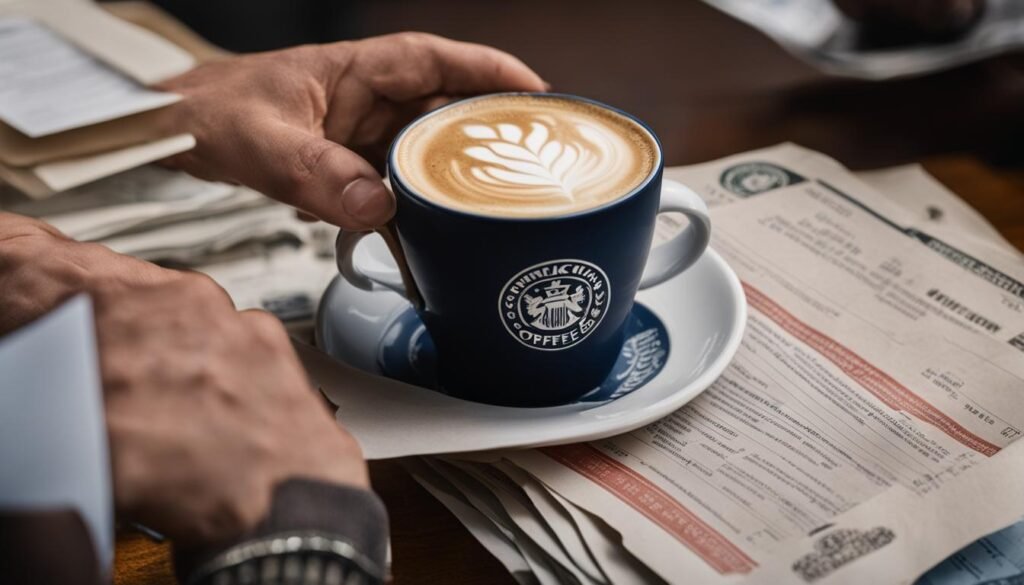
After the end of World War II, the focus on coffee regulations in the UK shifted towards quality control and fair trade practices. The government implemented various measures to ensure that consumers were protected and that coffee sold in the market met certain standards.
One of the key areas of regulation was coffee labeling. Clear guidelines were established to ensure that coffee packaging accurately represented the content and origin of the product. This helped consumers make informed choices and prevented false advertising or misrepresentation.
Additionally, the government introduced rules and standards for coffee import and export. These regulations aimed to maintain the quality and consistency of coffee available in the UK market. They also supported fair trade practices by ensuring that coffee producers were paid fair prices for their products.
| Post-War Coffee Regulations | Impact |
|---|---|
| Labeling Guidelines | Consumers were empowered to make informed choices, and false advertising was reduced. |
| Import/Export Standards | Ensured the quality and consistency of coffee in the market, supported fair trade practices. |
These post-war regulations aimed to ensure that coffee remained a popular and enjoyable beverage for consumers in the UK. The government’s efforts to regulate coffee focused on safeguarding consumer interests and maintaining the integrity of the coffee industry.
The Importance of Quality Control
Quality control became a priority for coffee regulations in the post-war period. Establishing standards for coffee labeling and import/export ensured that consumers could trust the quality and authenticity of the coffee they purchased.
By enforcing these regulations, the UK government sought to protect consumers from fraudulent practices and maintain the reputation of the coffee industry. Today, coffee drinkers in the UK can enjoy a wide variety of high-quality coffee options, thanks in part to these post-war regulations.
Coffee Today: Legal and Popular
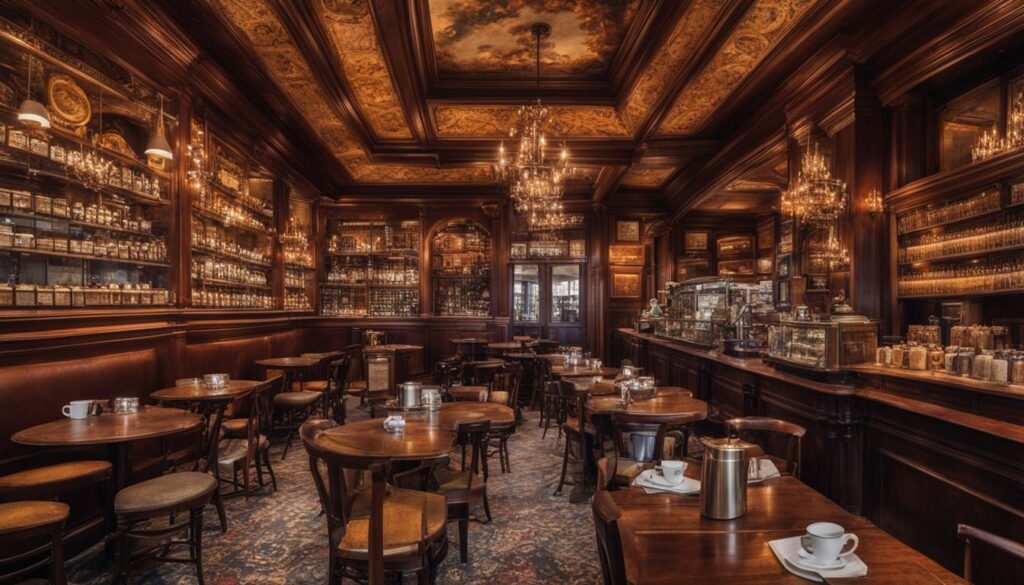
Today, coffee is not only legal but also widely consumed in the UK. There are no specific laws or regulations banning its consumption, making it accessible to coffee enthusiasts across the country. Whether you prefer a classic espresso, a creamy latte, or a flavorful cappuccino, you can easily find a coffee shop or café that caters to your taste preferences.
The popularity of coffee in the UK has skyrocketed in recent years, with a vibrant coffee culture taking center stage. From independent specialty coffee shops to well-known chains, there is a wide range of options available to satisfy every coffee lover’s cravings. These establishments not only serve delicious coffee but also often showcase the artistry of talented baristas, creating an immersive and enjoyable coffee experience.
As more people discover their love for coffee, the demand for high-quality beans and specialty brews has also grown. The UK’s coffee market is diverse and competitive, with coffee roasters and suppliers offering an array of flavors and styles from around the world. This thriving industry ensures that coffee enthusiasts can explore and savor the various nuances and complexities of different coffee origins and brewing methods.
Whether you enjoy a cup of coffee to kickstart your day or to unwind with friends, there is no denying the cultural significance of coffee in the UK. It has become a beloved beverage that brings people together, fostering social connections and moments of shared enjoyment. So, the next time you savor your favorite coffee blend, take a moment to appreciate the rich history and vibrant present of coffee in the UK.
Conclusion
Throughout the history of coffee in the UK, there have been debates and discussions about its legality. However, coffee has never been completely illegal in the country. Instead, there have been periods of regulation and restriction, driven by concerns about its impact on society. Understanding the historical context and evolution of coffee regulations provides valuable insights into the cultural significance of this beloved beverage in the UK.
Coffee has a long and rich history in the UK, dating back centuries. In the 17th century, coffeehouses emerged as popular social and intellectual hubs. Yet, these establishments were also seen as potential hotbeds of sedition and treason, leading to a temporary ban imposed by King Charles II in 1675. Fortunately, the ban was lifted the following year, and coffeehouses continued to flourish.
In the 18th and 19th centuries, coffee’s reputation improved, and it became a beverage enjoyed by all social classes. Coffeehouses became places for socializing, conducting business, and discussing intellectual ideas. Although the government implemented regulations and taxes on coffee during this time, there were no specific laws banning its consumption.
Today, coffee is legally and widely consumed in the UK. There are no specific laws or regulations prohibiting its consumption. Coffee culture thrives, with a plethora of coffee shops and cafes offering diverse options to satisfy different tastes and preferences. From classic espressos to trendy cold brews, the UK’s love for coffee continues to evolve.
Unlocking the Legacy of Coffee in the UK
While coffee has faced restrictions and regulations in the past, it has never been completely outlawed in the UK. Its legality has evolved alongside changing societal attitudes and concerns. By exploring the history of coffee regulations, we gain a deeper understanding of the cultural significance of this aromatic beverage. So, the next time you sip your favorite brew in a cozy coffee shop or enjoy a morning cup at home, remember the long and fascinating journey of coffee in the UK, from its early controversies to becoming a cherished part of daily life.
FAQ
Was coffee ever illegal in the UK?
No, coffee has never been completely illegal in the UK. While there have been debates and restrictions on coffee in the past, its consumption has always been allowed.
What were the regulations on coffee consumption in the UK throughout history?
In the 17th century, there was a temporary ban on coffeehouses, but it was quickly lifted. In the 18th and 19th centuries, there were regulations and taxes on coffee, but no specific laws banning its consumption. During World War II, coffee was rationed, but not completely banned. Today, there are no specific laws or regulations banning coffee consumption in the UK.
Did the UK have a coffee ban in the 17th century?
Yes, in 1675, King Charles II issued a proclamation banning coffeehouses, but the ban was lifted the following year.
What was coffee’s reputation in the 18th and 19th centuries in the UK?
Coffee gained popularity and became a socializing beverage in the UK during these centuries. Coffeehouses were places for socializing, intellectual discussions, and conducting business. While there were regulations and taxes on coffee, there were no specific laws banning its consumption.
Did the temperance movement lead to restrictions on coffee consumption?
The temperance movement in the UK advocated for the reduction of alcohol consumption and some temperance groups promoted coffee as an alternative. However, there were no widespread bans on coffee during this time.
How was coffee affected during World War II in the UK?
During World War II, the UK implemented strict rationing, including coffee. Coffee substitutes, such as chicory, were often used due to coffee shortages. However, coffee was not completely banned.
What were the post-war coffee regulations in the UK?
After World War II, the UK focused on quality control and fair trade practices. The government introduced regulations on coffee labeling, advertising, and import/export standards to protect consumer interests and maintain the quality of coffee sold in the market.
Is coffee legal and popular in the UK today?
Yes, coffee is legally and widely consumed in the UK today. There are no specific laws or regulations banning its consumption. Coffee culture continues to thrive, with a wide range of coffee shops and cafes offering diverse options to cater to different tastes and preferences.
What can we conclude about the legality of coffee in the UK?
Coffee has never been completely illegal in the UK. While there have been debates and restrictions in the past, its consumption has a long and rich history in the country. Understanding the historical context and evolution of coffee regulations provides insights into the cultural significance of coffee in the UK.
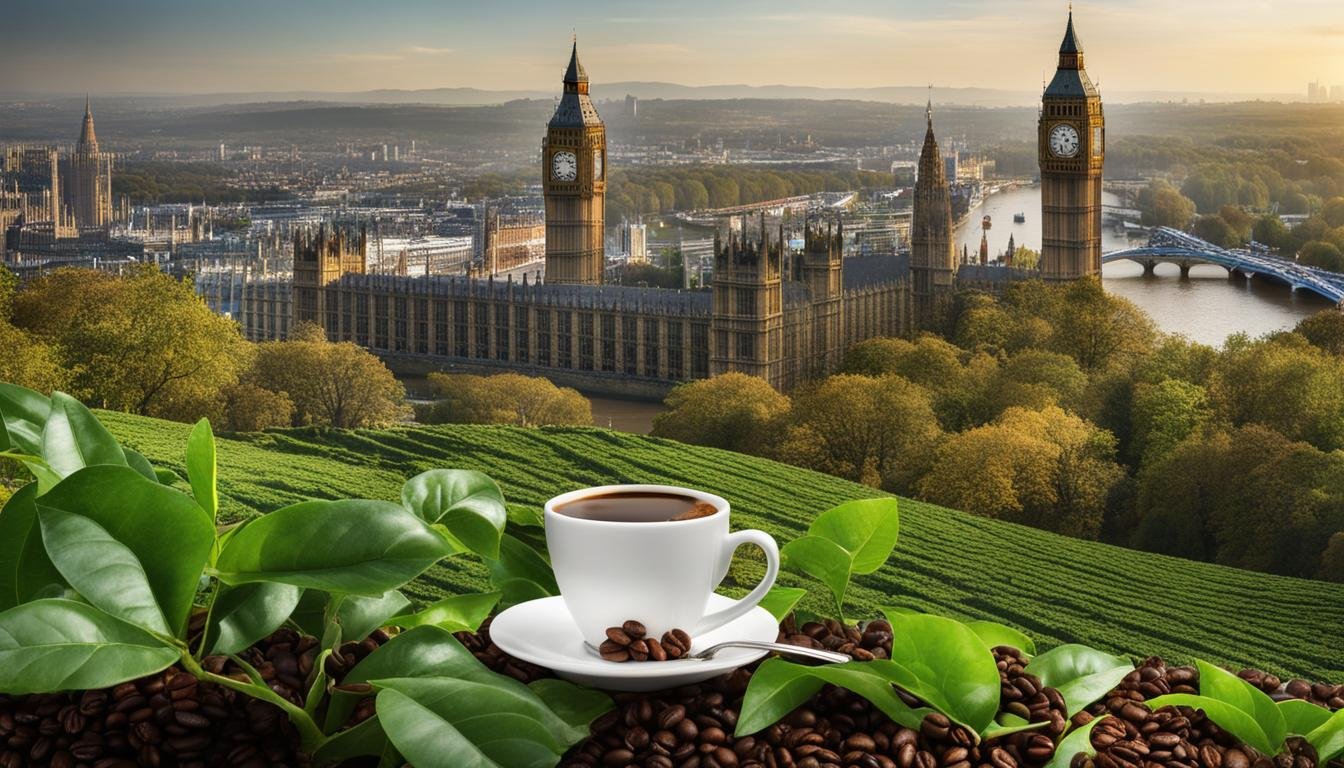
Leave a Reply